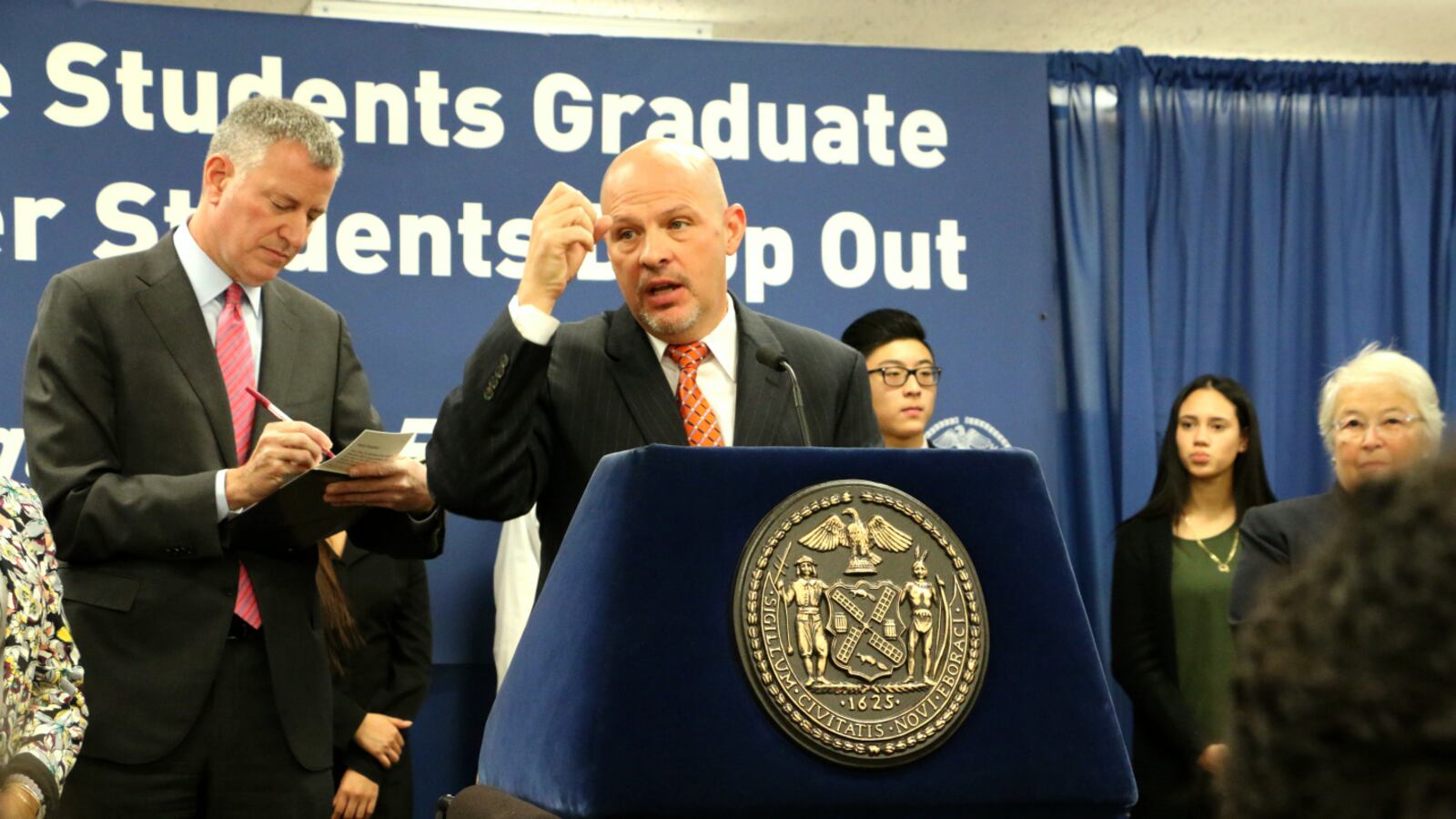A lot has changed in the last two years for United Federation of Teachers President Michael Mulgrew.
Two years ago, he was shepherding the city teachers union through the waning days of the Bloomberg administration and fending off threats to teachers’ job protections. Now, Mayor Bill de Blasio has proven a faithful partner for the union, supporting its agenda on improving struggling schools and schools’ role in addressing poverty.
The union’s improved relationship with City Hall has come with ample benefits, Mulgrew said during an interview at a breakfast event that Chalkbeat hosted at the Ford Foundation on Tuesday. But he said it has also stripped the union of a useful organizing strategy — a built-in opponent to rally members around.
“As a union leader, it’s always great to have a foe,” Mulgrew said. “But as a teacher, it’s better that you can concentrate on what you know is going to make the profession better, and therefore your members’ lives and the fulfillment of what they’re trying to do, better. How do you marry the two is really the question.”
Mulgrew has so far seemed to answer that question by focusing the union’s sharpest criticism on Gov. Andrew Cuomo and charter-school operator Eva Moskowitz, while holding back on some issues that he would have used as opportunities to attack City Hall under Bloomberg. He celebrated a decline in the city’s class sizes this week, but last year declined to criticize de Blasio even even though classes had grown, for example.
And while tensions are at a low in New York City, Mulgrew said he still has a responsibility to participate in national debates about teaching. “There’s still a fight for the profession,” he said, alluding to the growth of charter schools, which tend not to have unionized teachers, and debates about using test scores to evaluate teachers.
“It is an interesting dynamic as it shifts,” he said. “Relishing the fight is great, but I think what I’m doing right now is more important in terms of building a workforce that will move the profession and education to a much better place.”
Here are a few other notable things Mulgrew said at the breakfast event:
On the difference between the UFT and other advocacy organizations, such as Families for Excellent Schools, that wield power in the city and in Albany: “We don’t have five or six people writing a check. We have 150,000 people who spend $5 a month.”
On why the UFT hasn’t backed the most extreme protests against testing: “We can’t say let’s get rid of all tests. That’s a diagnostic we need. It’s like telling a carpenter we’re taking your tape measure away.”
On why equating teacher effectiveness with high student test scores sends the wrong message to teachers: “The logic in the public eye is telling the teachers not to work in challenging settings.”
On the value of changing teacher preparation to focus on practical skills: “Do we need six semesters of Piaget’s developmental theories? I would argue no.”
On what could stop the city’s community schools initiative from having the impact the UFT thinks it can: “The question is how do we take that to scale? …. Finding the right partners is the challenge for us right now.”
On his definition of systemwide success: “The constant striving to get there is the success.”

